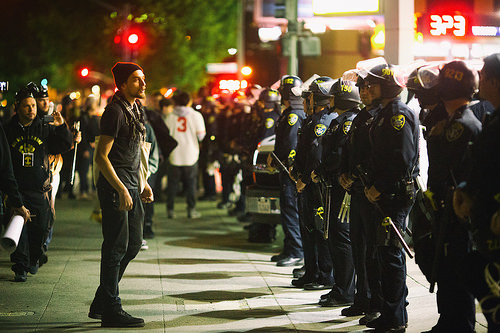Too much fun? Too loud? When is it a crime in Pennsylvania?
 New Year’s Eve and New Year’s Day are two big events in the City of Philadelphia, its surrounding suburbs, and New Jersey. Unfortunately, some people celebrate too much and find themselves charged with the crime of Disorderly Conduct. This criminal offense is often misunderstood but it can jeopardize a person’s otherwise clean criminal record. In Pennsylvania disorderly conduct, Title 18, Section 5503, is defined as the intent to cause public inconvenience, annoyance, alarm or recklessly creating a risk by engaging in fighting, threatening, or “tumultuous” behavior. Making unreasonable noise, using obscene language or creating hazardous or physically offensive condition is also considered a Disorderly Conduct in Pennsylvania. This crime does not require actual physical contact and is more focused on the overall conduct and the intent of the actor. In many cases, Disorderly Conduct is charged with other crimes, all of which will require a proper defense.
New Year’s Eve and New Year’s Day are two big events in the City of Philadelphia, its surrounding suburbs, and New Jersey. Unfortunately, some people celebrate too much and find themselves charged with the crime of Disorderly Conduct. This criminal offense is often misunderstood but it can jeopardize a person’s otherwise clean criminal record. In Pennsylvania disorderly conduct, Title 18, Section 5503, is defined as the intent to cause public inconvenience, annoyance, alarm or recklessly creating a risk by engaging in fighting, threatening, or “tumultuous” behavior. Making unreasonable noise, using obscene language or creating hazardous or physically offensive condition is also considered a Disorderly Conduct in Pennsylvania. This crime does not require actual physical contact and is more focused on the overall conduct and the intent of the actor. In many cases, Disorderly Conduct is charged with other crimes, all of which will require a proper defense.
Disorderly conduct is generally graded as a summary offense. It can be graded as a misdemeanor of the third degree if the intent of the actor is to cause substantial harm, serious inconvenience or the person persists in the disorderly conduct. A critical component of disorderly conduct is the public’s involvement in it. If the conduct never becomes public, there is no disorderly conduct. Pennsylvania defines “public” conduct as affecting or likely to affect persons in a place to which the public or a substantial group has access. These places would include schools, apartment houses, place of business, any neighborhood or any premises which are open to the public.
Recently, the Pennsylvania Superior Court found that there was insufficient evidence to convict a person of disorderly conduct when the conduct only occurred between the defendant and a neighbor. The court found that because the actor didn’t intend to cause any type of public annoyance, inconvenience, or alarm, there was no disorderly conduct. In another case, however, the court found a person guilty of disorderly conduct where the individual had thrown garbage all over the street. It appears, however, that disorderly conduct often requires more than just words. A court found that in another case that the prosecution failed to prove a disorderly conduct charge when a defendant shouted obscenities across the street at a police officer. The court found that the brief outburst was not sufficient to create a “public concern” nor was the volume of the comments inconsistent with other noise in the neighborhood.
If you are charged with disorderly conduct New Year’s Eve, New Year’s Day, or any day its important that your criminal defense lawyer focus on these elements of this crime. While disorderly conduct is normally charged as a summary offense, even a low level summary offense can still create a criminal record. Even a minor criminal conviction can negatively affect job prospects and other professional opportunities. In Pennsylvania, a summary offense can be expunged after five years but you can’t expunge a misdemeanor conviction at this point in the Commonwealth. This law, however, may change regarding misdemeanor convictions in future.
If you have more questions about criminal defense, check out one of my free books or videos. They are all great free resources that can put you the road to success.
Contact Our Criminal Defense Lawyers in PA & NJ
Please click here to contact our Philadelphia criminal defense lawyers. We offer free case reviews and serve the following areas in Pennsylvania and New Jersey, Atlantic City, Camden, Cherry Hill, Chester, Conshohocken, Doylestown, Media, Norristown, Philadelphi


